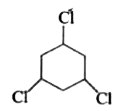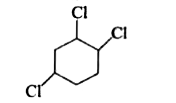A Mendel's law which does not have any exception is
Law of dominance
Law of segregation
Law of independent assortment
None have all exceptions
The correct Answer is:B
To solve the question regarding which of Mendel's laws does not have any exceptions, we will analyze each of the options provided.
Step 1: Understand Mendel's Laws
Mendel proposed three fundamental laws of inheritance:
1. Law of Dominance: This law states that in a heterozygote, one allele may conceal the presence of another. The dominant allele will express itself over the recessive allele.
2. Law of Segregation: This law states that during the formation of gametes, the two alleles responsible for a trait separate from each other. Each gamete carries only one allele for each trait.
3. Law of Independent Assortment: This law states that alleles for different traits are distributed to gametes independently of one another.
Step 2: Analyze Each Law for Exceptions
- Law of Dominance: This law has exceptions, such as incomplete dominance and codominance, where both alleles can express themselves.
- Law of Segregation: This law is generally upheld and does not have exceptions in typical Mendelian inheritance. It states that alleles segregate during gamete formation, and each gamete receives one allele.
- Law of Independent Assortment: This law also has exceptions, particularly in cases of linked genes, where genes located close together on the same chromosome tend to be inherited together.
Step 3: Conclusion
After analyzing the three laws, we can conclude that the Law of Segregation is the only law that does not have any exceptions in standard Mendelian genetics.
Final Answer
The Mendel's law which does not have any exception is the Law of Segregation.
---
Mendel proposed three fundamental laws of inheritance:
1. Law of Dominance: This law states that in a heterozygote, one allele may conceal the presence of another. The dominant allele will express itself over the recessive allele.
2. Law of Segregation: This law states that during the formation of gametes, the two alleles responsible for a trait separate from each other. Each gamete carries only one allele for each trait.
3. Law of Independent Assortment: This law states that alleles for different traits are distributed to gametes independently of one another.
- Law of Dominance: This law has exceptions, such as incomplete dominance and codominance, where both alleles can express themselves.
- Law of Segregation: This law is generally upheld and does not have exceptions in typical Mendelian inheritance. It states that alleles segregate during gamete formation, and each gamete receives one allele.
- Law of Independent Assortment: This law also has exceptions, particularly in cases of linked genes, where genes located close together on the same chromosome tend to be inherited together.
After analyzing the three laws, we can conclude that the Law of Segregation is the only law that does not have any exceptions in standard Mendelian genetics.
The Mendel's law which does not have any exception is the Law of Segregation.
Similar Questions
Knowledge Check
Which of the following compounds does not have any geometrical isomer?
A B
B C
C D
D
Unit vector does not have any
View SolutionDoes pH have any effect on enzymes ?
View SolutionIs there any integer which does not have zero as its additive identify?
View SolutionState Mendel's First law of inheritance and explain with the help of a suitable example.
View SolutionState Mendel's Second law of inheritance and explain with the help of a suitable example.
View SolutionWhich of the following compounds does not have any geometrical isomer?
View SolutionState Mendel's law of dominance.
View Solution
